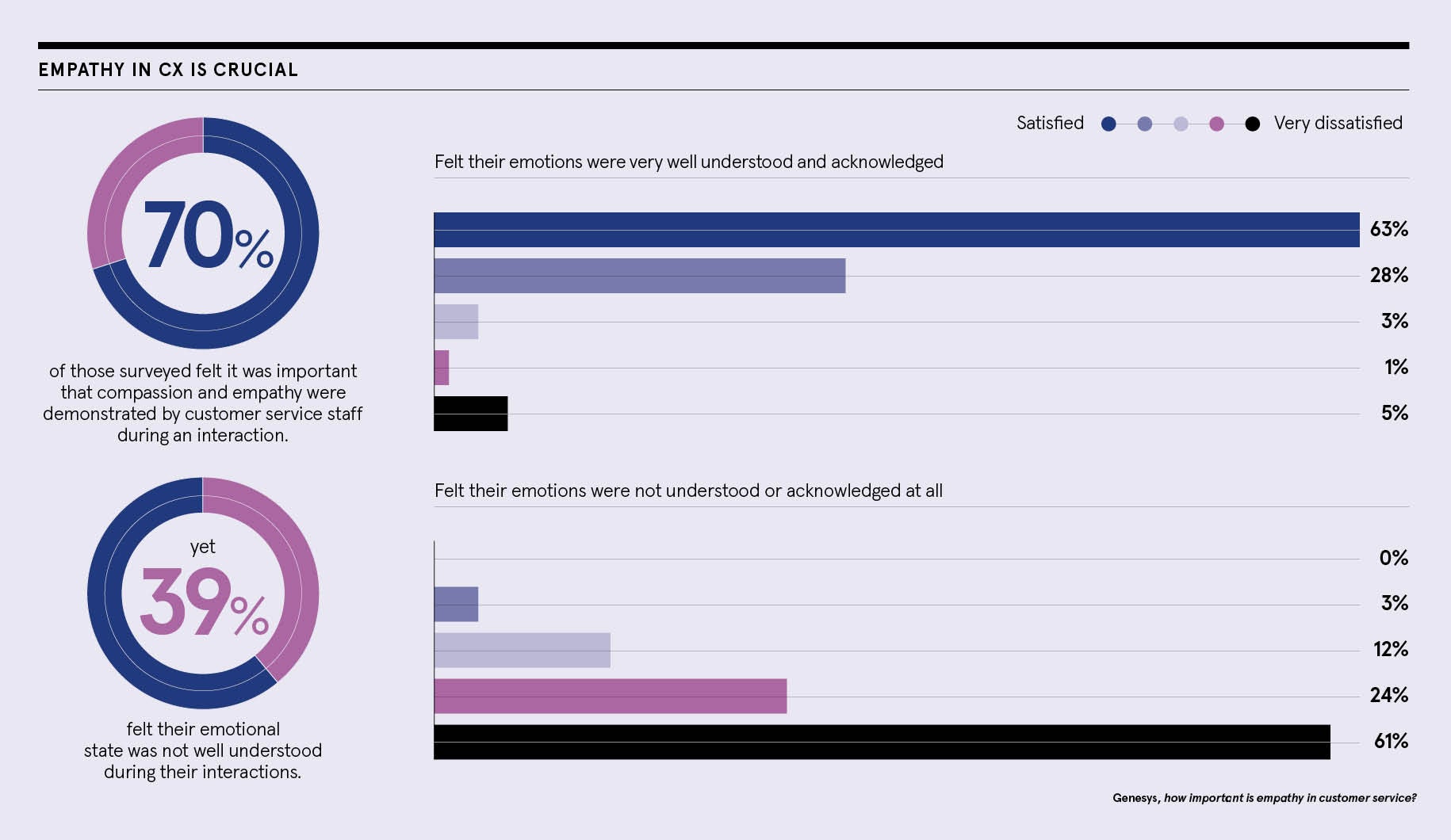
Calling a contact centre has not traditionally been an experience that customers enjoy. A necessary evil to solving a problem with, for instance, a utility provider, customers would, at best, tolerate the long waiting times and frustration of being passed around departments having to explain their issue all over again. At worst, it would drive them to take their custom elsewhere.
With few competitors offering a better alternative, most people fell in the former camp. In recent years, however, that has changed, as improving user experiences in other parts of consumers’ lives have elevated their expectations to new levels. Meanwhile, the multitude of new communications channels have left them wanting different ways to interact too. Today, they expect a far more seamless experience, whatever channel they are communicating through.
“If a customer messages a brand on the company website and then phones its contact centre later that day or week, they expect the agent to immediately know who they are, what they’ve been doing and their experience and interactions with the company to date,” says Barry O’Sullivan, executive vice president and general manager for digital and AI at Genesys, which delivers more than 70 billion customer experiences for organisations in over 100 countries each year.
“No matter what way you choose to contact a business, whether it’s walking into a store or calling them on the phone or messaging them on WhatsApp, Facebook or Instagram, you want to be remembered and treated with empathy across all channels as you move through them.”
Personalisation is important because everybody wants to feel understood and remembered, not be treated as one of many
These evolving customer expectations have presented an urgent need to transform the contact centre experience, including how organisations measure interactions. Traditionally, the key metric was always efficiency. As the contact centre was, in effect, a cost centre, companies strived to find ways to increase the speed with which agents could get through calls. In recent years, the focus has shifted more to the effectiveness of interactions, analysing whether customer queries are resolved on their first call and measuring overall customer satisfaction.
Though this is a step in the right direction, the next phase in the contact centre’s transformation is even more important to meeting the growing expectations of customers: increasing empathy. When customers deal with a brand today, they want to feel heard and understood. They want to feel like the brand cares about them. This is much harder for organisations to measure, as the main area where results of customer empathy appear is in the loyalty to a brand. It’s a vital metric.

“Personalisation is important because everybody wants to feel understood and remembered, not be treated as one of many,” says O’Sullivan. “From a technology point of view, it’s getting easier to develop and deliver personalisation. If you opt into communicating with a business, it’s easier to know what you’ve been doing on the website, to remember what you said the last time you called, to know what you said in your last text message, and then thread all of those things together to personalise the experience. The important thing, however, is achieving that at scale.
“That’s where automation comes in. A lot of people prefer self-service – they don’t want to talk to anybody, they just like to be able to solve issues themselves. That requires technologies such as chatbots that can help them get answers they want without having to speak to a real person. The top 250 most common queries can be fully automated, which allows organisations to deliver that solution, at scale, for those customers and then free up their agents to deal with the higher value stuff that require more human intervention and empathy. Without personalisation, it feels like somebody invites you around for dinner and when you show up they say, ‘Who are you?’”
Genesys connects every customer moment across marketing, sales and service on any channel. Its Experience-as-a-Service vision, powered by cloud and AI technologies enables organisations of any size to achieve personalised, emphatic interactions at scale, fostering customer trust and loyalty. By first tapping into information already held on customers, through the likes of CRM systems and chat histories on web chat, WhatsApp, Facebook Messenger and Instagram Messenger, Genesys AI-enabled automation technology then gives customer service agents a 360-degree view of the customer and the journey they’re on with the brand.
With Genesys software, organisations are now seeing the top-line business value of their contact centres, rather than just focusing on bottom-line efficiencies and the effectiveness of phone calls. At Vodafone Germany, for instance, chatbots now field 100% of all messaging conversations, and the company has significantly accelerated conversations on the website. Ethiopian Airlines, meanwhile, used the Genesys Predictive Engagement solutions to increase their website conversion rates by over 60% in just six months.
“If you’re on a brand’s website, the company can match your digital journey with similar journeys from other customers in the past to inform the best way to meet your expectations,” says O’Sullivan. “It could be flashing up a piece of content, it could be offering a web chat, or it could be suggesting you call an agent and if you do, you’re connected with the agent best suited to deal with your query. That is all done by software, which enables scalability. Brands can meet customers at their exact moment of need to deliver a seamless experience with zero silos.
“We’ve seen usage in digital channels rise over 300% in just the last year, but there are new digital experiences being created and invented now. Our vision is to be the platform for all digital experiences, including the exchange of digital goods and payments. More digital experiences will be delivered, more digital products will be created, and we want to be the platform for businesses to communicate with their customers on all of those.”
For more information, visit
genesys.com/en-gb
Promoted by

Calling a contact centre has not traditionally been an experience that customers enjoy. A necessary evil to solving a problem with, for instance, a utility provider, customers would, at best, tolerate the long waiting times and frustration of being passed around departments having to explain their issue all over again. At worst, it would drive them to take their custom elsewhere.
With few competitors offering a better alternative, most people fell in the former camp. In recent years, however, that has changed, as improving user experiences in other parts of consumers’ lives have elevated their expectations to new levels. Meanwhile, the multitude of new communications channels have left them wanting different ways to interact too. Today, they expect a far more seamless experience, whatever channel they are communicating through.
“If a customer messages a brand on the company website and then phones its contact centre later that day or week, they expect the agent to immediately know who they are, what they’ve been doing and their experience and interactions with the company to date,” says Barry O’Sullivan, executive vice president and general manager for digital and AI at Genesys, which delivers more than 70 billion customer experiences for organisations in over 100 countries each year.

